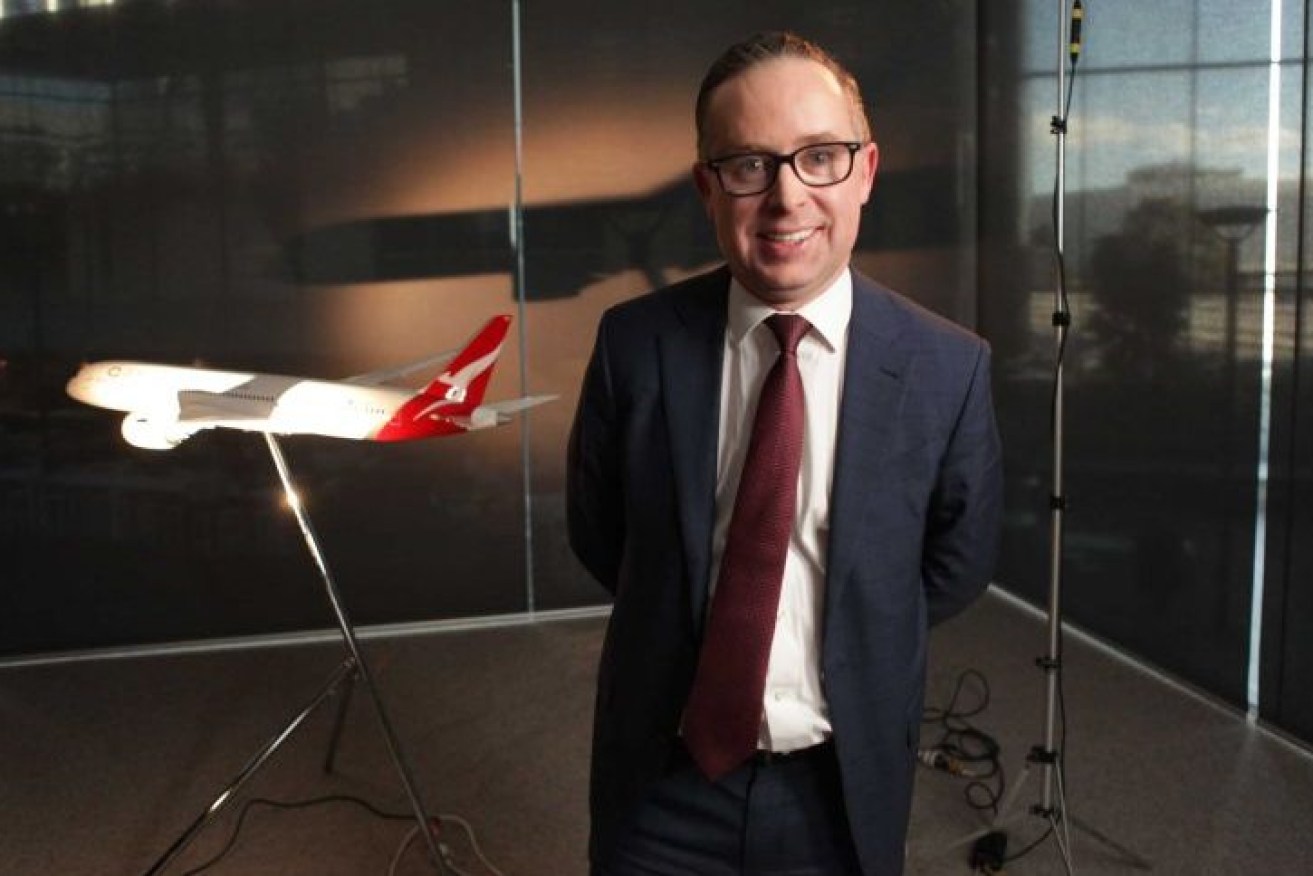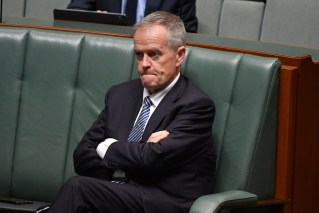Depressions, bombs and the GFC – but Qantas has never seen anything like this
In its 100 years, Qantas has never experienced a crisis like this — and it’s familiar with crises.

Qantas chief executive Alan Joyce (Photo: ABC News, Tom Hancock)
When Qantas chief executive Alan Joyce announced 6000 job losses yesterday, he tried to sound defiant.
He reminded Australians that the airline was founded in 1920 when the world was recovering from the deadly Spanish Flu.
But he could have mentioned other events, too.
The Flying Kangaroo survived the Great Depression, choosing to launch its first overseas flight in 1935.
It survived the destruction of some of its planes by Japanese forces in World War II, and the bombing of a hangar in Darwin.
It survived the Asian financial crisis, the tech bubble of the late 1990s, the SARS outbreak from 2002-2004, and the Global Financial Crisis of 2007-2009.
It survived them all, and it is currently one of the most profitable airlines in the world.
But it’s never faced a challenge like this one. Neither has Alan Joyce.

Alan Joyce has been chief executive of Qantas since 2008. (Photo: Sergio Dionisio: AAP)
“Any airline that’s been around for 100 years, which Qantas has, has been through every crisis you could imagine,” the chairman emeritus of the Centre for Aviation, Peter Harbison, told the ABC.
“But confronting something like this is massive. Nobody’s faced anything like this.
“To basically be starved of cash flow for several months, in an industry which is highly capital intensive, and to be watching while your asset values decline very steeply, you know, it’s going to be difficult.
“He’s not through it yet, obviously. But he’s preparing for it.”
Joyce became the chief executive of Qantas in 2008 during the Global Financial Crisis.
His first few years were controversial.
In 2011, after he announced significant job losses and structural changes at the airline, which led to rolling industrial action from unions, he responded by grounding Qantas’ entire domestic and international fleet.
“Qantas is losing $15m a week from strike action — a continuous debt we can’t afford,” Mr Joyce claimed at the time.
“The business is bleeding badly, and the grounding of the fleet has been forced directly by the extreme action of unions.”
It became a political headache for then-prime minister Julia Gillard.

Julia Gillard was faced with Qantas grounding all domestic and international flights. (Photo: AAP: Dean Lewins)
That same year, Joyce’s remuneration rose by 70 per cent, from $2.92 million (in 2009-2010) to $5.01 million.
He gave an interview to GQ magazine in which he said his salary was still conservative.
“What Qantas pays me as CEO is actually very conservative compared with the other ASX 100 companies and if you ranked salaries by hours worked, I’m not even the highest-paid person in Qantas because the pilots and senior captains get paid a lot more,” he told the magazine.
Angry pilots fired back.
“Alan Joyce is a mathematician, but I think he probably needs to invest some of that $5 million in a new calculator,” Captain Richard Woodward, vice president of the Australian and International Pilots Association (AIPA) said.
“To put that sort of package in perspective, if Mr Joyce worked 14-hour days, six days a week and never took a holiday, he’d be on an hourly rate of $1145. To describe $5 million a year as conservative is outrageous and insulting.”
By 2018, Joyce had risen to become the highest-paid chief executive in Australia, taking home $23.9 million, according to the Australian Council of Superannuation Investors.
However, in March this year, after the global aviation industry had been smashed by the economic shutdowns, Joyce said he’d forego his salary for six months as he dealt with the crisis.
Yesterday, he announced a three-year plan to survive the shutdowns, including thousands more job losses.
“It’s going to be Joyce’s biggest test,” Harbison said.

Qantas CEO Alan Joyce says many of the 6000 people being stood down have spent decades at the company.
The plan will see Qantas cut at least 6000 jobs across all parts of the business, which won’t resume substantial international travel until July 2021.
They will include 1450 office roles, 1500 ground operations staff including baggage handlers, 1050 cabin crew, 630 engineering jobs and 220 pilots.
Another 15,000 employees will continue to be stood down without pay over coming months, though Joyce hopes half of those will be working again by the end of the year.
About 100 aircraft will be grounded for at least 12 months, including most of its international fleet.
Qantas will also permanently retire its six remaining 747s, six months ahead of schedule.
The moves are designed to reduce the airline’s costs by $15 billion during an expected three-year period of lower activity, and then result in $1 billion per year of ongoing cost savings from the 2023 financial year.
Qantas has also announced plans to raise up to $1.9 billion from investors.
IBISWorld senior industry analyst Tom Youl said Qantas was trying to minimise its cash burn of up to $40 million per week while its operations have largely ground to a halt.
Harbison, who has worked in the aviation industry for over 50 years, said it would be Joyce’s biggest test as CEO.
“Joyce is doing all the things I would have expected him to do so far,” Harbison told the ABC.
“He’s come out with a three-year strategic plan, which is a pretty sensible thing to do.
“You’ve got to be mad to be in airlines, seriously.”
– ABC / Gareth Hutchens












